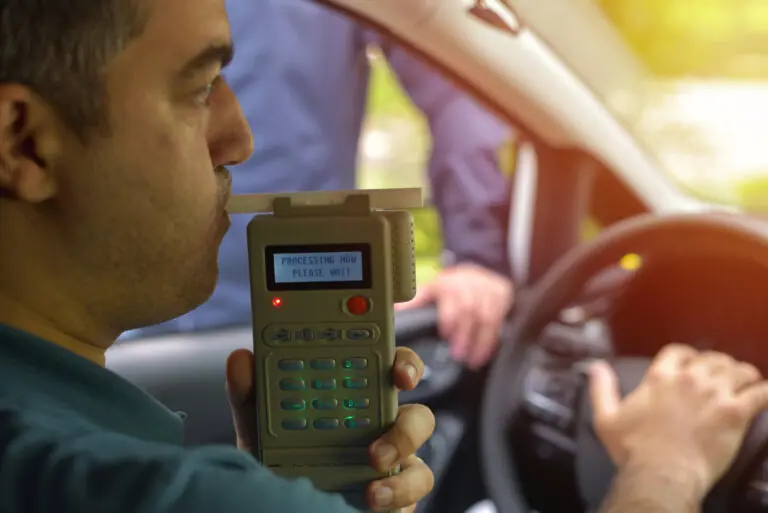When faced with the prospect of a breathalyzer test in Florida, it is vital to approach the situation with a clear understanding of your rights and the potential consequences. At Van Elswyk Law, we are experienced in Florida DUI cases and can provide you with comprehensive insights on the decision as to whether or not to refuse a breathalyzer test.
What Is a Breathalyzer?
A breathalyzer is a device used to measure the concentration of alcohol in a person’s breath. It is commonly used by law enforcement officers to determine if a driver is operating a motor vehicle under the influence of alcohol, which is commonly referred to as a DUI (Driving Under the Influence).
The breathalyzer works based on the principle of alcohol present in a person’s breath being proportional to the alcohol present in their blood. When a person consumes alcohol, it is absorbed into their bloodstream and is then expelled through their breath as they exhale. The breathalyzer measures the alcohol content in the breath sample and converts it into a blood alcohol concentration (BAC) reading.
Florida’s Implied Consent Law
Under Florida’s implied consent law, drivers who operate a motor vehicle in the state automatically agree to submit to a breathalyzer test upon request by a law enforcement officer. Failure to comply with this requirement can result in immediate penalties. If this is your first DUI, your driver’s license will be suspended for 12 months. If it is your second or third DUI, the suspension will be for 18 months and there may be a separate criminal misdemeanor charge. It is important to note that the implied consent law applies regardless of whether an individual is ultimately found guilty of a DUI.
Will Refusing a Breathalyzer Test Prevent a DUI?
Refusing to take a breathalyzer test does not guarantee that you will avoid being found guilty of a DUI in Florida. While refusal can limit the prosecution’s evidence related to your blood alcohol content, it does not eliminate other forms of evidence that can be used to establish impairment. Law enforcement officers can rely on alternative evidence such as field sobriety tests, officer observations, witness statements, or video recordings to build a case against you. The decision of guilt or innocence in a DUI case is determined by considering all available evidence and the overall circumstances surrounding the incident. Therefore, it is important to understand that refusing a breathalyzer test does not automatically absolve you from the possibility of being found guilty of a DUI.
What If the DUI Arrest Was Unlawful?
If you believe that your arrest was unlawful, it is important to consult with a qualified attorney who specializes in DUI cases in Florida. If your arrest was conducted without probable cause or in violation of your constitutional rights, it may be possible to challenge the legality of the arrest and potentially have the evidence obtained suppressed or the charges dismissed. In such a case, your refusal to take a breathalyzer test cannot be used against you to deny you your driving privileges. However, it is difficult to determine during the arrest whether or not the officer had probable cause.
When assessing the lawfulness of an arrest, several factors come into play, including whether the arresting officer had reasonable suspicion to initiate the traffic stop, whether proper procedures were followed during the arrest, and whether your constitutional rights were violated. An experienced DUI attorney will thoroughly evaluate the circumstances surrounding your arrest, examine the evidence, and determine the best course of action.
Deciding Whether to Refuse a Breathalyzer Test
The decision of whether to refuse a breathalyzer test in Florida should be approached with careful consideration. To make an informed decision, individuals should evaluate the potential administrative penalties, criminal implications, and personal circumstances involved. Seeking guidance from an experienced DUI attorney is crucial in understanding the nuances of the law and making decisions that protect one’s rights and future.

